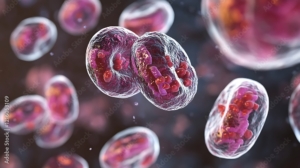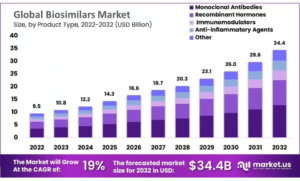
Conflict of interest?
In 2016, PharmaMar filed a European marketing authorisation application for Aplidin as a treatment for patients with multiple myeloma. After the European Medicines Agency rejected the MAA twice, which was accepted in Australia with the same data, PharmaMar sued the EC. European Biotechnology spoke with PharmaMar's Chairman José María Fernández Sousa-Faro.
EuroBiotech_The cancer drug Aplidin (plitidepsin) is approved in Australia as a 4th-line treatment for patients with relapsed and refractory multiple myeloma, but not in Europe. How did the regulatory authorities justify this on the basis of the clinical data submitted?
Sousa-Faro_The data submitted to both agencies were the same. EMA’s rapporteur and co-rapporteur recommended the approval of plitidepsin with no outstanding issues. Then inexplicably, the Committee for Medicinal Products for Human Uses (CHMP) summoned an oral explanation in a short period of time making use of a deliberately predated document.
The Chairman conducted an incredible oral hearing in which the Swedish and Danish CHMP´s members attacked the recommendation of rapporteur and co-rapporteur leading to a negative vote of the majority with no need to justify it. Besides, it was contrary to the recommendation of rapporteurs. As far as we know, there is no precedent. In Australia, the authorities with the same Phase III study that we presented to the EMA concluded that the drug was safe and there was a positive benefit for the patients, where some stages of the disease had not many treatment options.
EuroBiotech_How did development continue in Europe after orphan drug status was granted in 2003?
Sousa-Faro_The development continued because we had the basis to believe that it could be a drug for multiple myeloma, so our objective was the registration for marketing authorisation. We conducted a Phase I and II and a Phase III study. The results were positive and that was precisely what encouraged us to register Aplidin in the EMA and to other regulatory agencies. At that time, due to the good tolerance of plitidepsin, that allowed its addition to other three drugs, we invested in a quadruple combination with bortezomib, lenalidomide, dexamethasone and plitidepsin for multiple myeloma. This study was abandoned after the EMA’s refusal.
EuroBiotech_What reasons did the EMA give for refusing marketing authorisation in 2017 and in the appeal procedure in 2018?
Sousa-Faro_There were no real differences between the examination and the reexamination, the speech at the CHMP was always the same, despite the fact that a total of three of four rapporteurs and co-rapporteurs were positively recommending the approval. As usual, they stated that the benefit/risk ratio was negative. Other previously approved drugs in multiple myeloma had a similar profile.
EuroBiotech_How did PharmaMar assess this and why did PharmaMar initiate proceedings before the ECJ?
Sousa-Faro_During the evaluation procedure, we witnessed things that we thought were out of the usual procedure. As I said, they recommended us a method that later they did not accept, additionally there were errors of form. However, the most surprising was that the CHMP bypassed the rapporteur and co-rapporteur’s positive opinion, which is unusual and unique. We asked for a reexamination. Here, it is worth recalling the Swedish nationalities and Karolinska Institute´s training of the four members, who were key to the EMA’s negative opinion on plitidepsin. Tomas Salmonson, chair of the EMA’s CHMP, the rapporteur of the appeal, Filip Josephson, the chair of the Scientific Advisory Group (SAG) assessment, Jonas Bergh, and SAG’s multiple myeloma expert, Hareth Nahi, who between 2015 and 2021 served as Senior Medical Advisor to the Swedish company XNK Therapeutics AB; a very high endogamy. I would like to highlight that the EMA does not have a compliance department as the FDA does, that verifies the declarations of the members regarding their independence.
EuroBiotech_What is the outcome so far?
Sousa-Faro_In 2020, the Court ruled in favour of PharmaMar, annulling the decision and ordering the European Commission (EC), the EMA depends on EC, to pay costs. The Court concluded that there was no guarantee that members of the EMA were free from a conflict of interest with the pharmaceutical industry. The EC did not appeal, so they accepted the sentence but Estonia and Germany did it in 2021, joined later by the Netherlands and the EMA itself as well. The question still unresolved here is: Why did Estonia and Germany appeal in opposition to the criterion of the only European institution concerned, the EC? Even more so when the Estonian CHMP abstained from voting in the Aplidin process. Last January, the Advocate General of the EU published his opinion about the case. His opinion was based on the fact that there was no conflict of interest because the Karolinska Institute is not a company; we all know that and this is not the point. The point is the SAG member that was working at that time for a company; XNK Therapeutics was linked to the Karolinska Institute. The Advocate General argues also, that there are multiple drugs for the treatment of multiple myeloma, which in his view should have led the judgment under appeal to declare the rival products rules on conflicts of interest inapplicable. However, he ignores that with respect to a drug there are first, second, third, fourth and fifth lines of treatment, so that competition per line is very limited, normally one or two, contrary to what the Advocate General says. Therefore, he inexplicably argues that since there are many treatments for multiple myeloma there is no competition from any product.
EuroBiotech_What is PharmaMar’s view on this and why and what did the EMA say in the proceedings?
Sousa-Faro_For us it is very clear. Our claim to the Court of Luxembourg had five allegations. The first one was conflict of interest and for which the Court ruled saying the procedure that led to the adoption of the contested decision did not provide sufficient guarantees to exclude any legitimate doubt as to possible bias.
It was also very clear for the Court because they did not examine the rest of the claim that referred to: breach of the principle of good administration, the principle of equal treatment, infringement of the requirement to provide a statement of reasons and infringement of the right of defence.
EuroBiotech_What is the explanation for the differences in the approval of Aplidin in Australia versus Europe?
Sousa-Faro_The Australian authorities can grant the independence of the members and therefore of the process versus EMA who has a sentence of the General Court of the EU for conflict of interest, an institution with the lack of a compliance department. This could be resolved with clear, transparent rules and if the decisions made by each member state belonging to the EMA were public and of course the motivation of the vote as happens in the oral hearings of the FDA that are of free public access.
EuroBiotech_What is the next step from PharmaMar’s point of view?
Sousa-Faro_We will fight until the end. Meanwhile, we are waiting for the Court of Justice of the EU to rule, from there we will take the decisions we have to take. If the Court again gives us the reason, the EMA has to re-evaluate the drug as it was left in 2017. In the event that the Court follows the opinion of the Advocate General, he recommended to cancel the previous sentence and to send the case back to the General Court, which will have to examine the other four points of the lawsuit that we filed against the EMA.



 Romi - adobe stock.com
Romi - adobe stock.com market.us
market.us